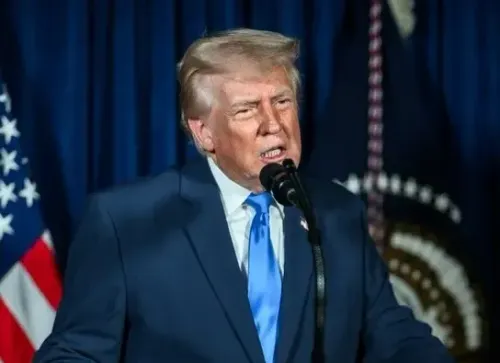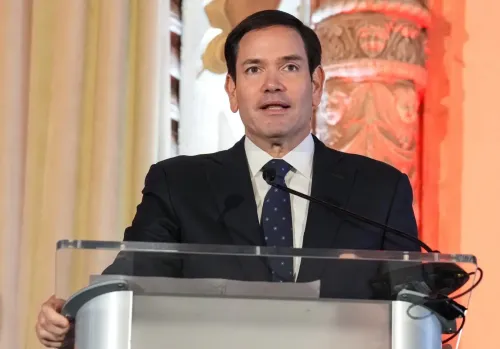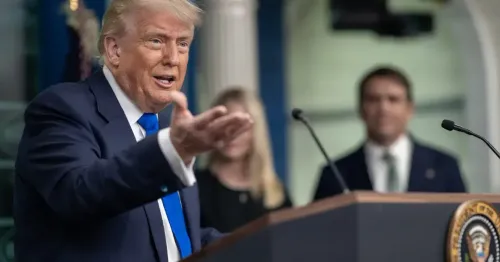Did India Pave the Way for Palestinian Statehood?

Synopsis
Key Takeaways
- India was among the first to recognize Palestine in 1988.
- Canada, Australia, and the UK have recognized Palestine after 37 years.
- International law supports Palestine's recognition.
- The recognition aims to foster a two-state solution.
- Commitments from the Palestinian Authority are necessary for international support.
New Delhi, Sep 21 (NationPress) Congress General Secretary Priyanka Gandhi Vadra commented on the recent recognition of Palestine as an independent and sovereign state by Canada, Australia, and the UK. She pointed out that India was among the initial countries to acknowledge Palestine's statehood back in 1988, and these nations are following suit after a lengthy 37 years.
In a post on X, the Lok Sabha MP from Wayanad highlighted, "India was one of the first nations globally to recognize Palestine as a state in November 1988. Throughout the brave struggle of the Palestinian people, we've demonstrated the importance of standing for righteousness and upholding the principles of humanity and justice on the world stage.
"Australia, Canada, and the UK have merely caught up, 37 years too late. Our recent policy towards Palestine has been nothing short of shameful and lacking moral integrity. It is disheartening to witness a decline from our previously bold stance."
Earlier, Palestine's Ministry of Foreign Affairs expressed gratitude towards Canada, Australia, and the UK for their recognition of the State of Palestine, affirming that this decision aligns with international law and legitimate resolutions.
In a statement on X, Palestine's Mission to the United Nations remarked: "The Ministry of Foreign Affairs and Expatriates appreciates and thanks the nations that have acknowledged the State of Palestine, including the United Kingdom, Canada, and Australia, considering these brave decisions to be consistent with international law and legitimacy resolutions."
This statement came following Canada, Australia, and the UK recognizing Palestine as a sovereign state on Sunday.
In a joint declaration, Australian Prime Minister Anthony Albanese and Foreign Affairs Minister Penny Wong stated: "Beginning today, September 21, 2025, the Commonwealth of Australia officially acknowledges the independent and sovereign State of Palestine. This recognition affirms the legitimate long-standing aspirations of the Palestinian people for their own state. Australia’s acknowledgment today, alongside Canada and the UK, is part of a coordinated international effort aimed at fostering new momentum for a two-state solution, commencing with a ceasefire in Gaza and the release of hostages taken during the October 7, 2023, atrocities."
Albanese and Wong noted that this recognition exemplifies Australia’s ongoing commitment to a two-state solution, viewed as the sole route to lasting peace and security for Israelis and Palestinians alike.
In their statement, they remarked: "The international community has outlined specific requirements for the Palestinian Authority. The President of the Palestinian Authority has reaffirmed Israel's right to exist and made direct commitments to Australia, including pledges to conduct democratic elections and implement significant reforms in finance, governance, and education. The terrorist group Hamas must have no role in Palestine."
In a video shared on X, UK PM Keir Starmer declared: "Today, to rekindle the hope for peace between Palestinians and Israelis and to advance a two-state solution, the United Kingdom officially recognizes the State of Palestine."
Canadian Prime Minister Mark Carney also announced Canada's acknowledgment of the State of Palestine, proposing a partnership in building a peaceful future for both Israel and Palestine.
Carney stated, "The current Israeli administration is systematically obstructing the establishment of a Palestinian state. It has pursued relentless settlement expansion in the West Bank, which contravenes international law. Its ongoing assault in Gaza has resulted in the deaths of tens of thousands of civilians, displaced over a million people, and caused a devastating famine in violation of international law. The current Israeli government has declared that there will be no Palestinian state."
"In this context, Canada recognizes the State of Palestine and extends our partnership to foster a peaceful future for both the State of Palestine and the State of Israel. Canada acts as part of an international initiative to uphold the possibility of a two-state solution. While we understand this recognition is not a cure-all, it aligns with the principles of self-determination and fundamental human rights outlined in the United Nations Charter, consistent with Canada’s policy for generations," he concluded.










